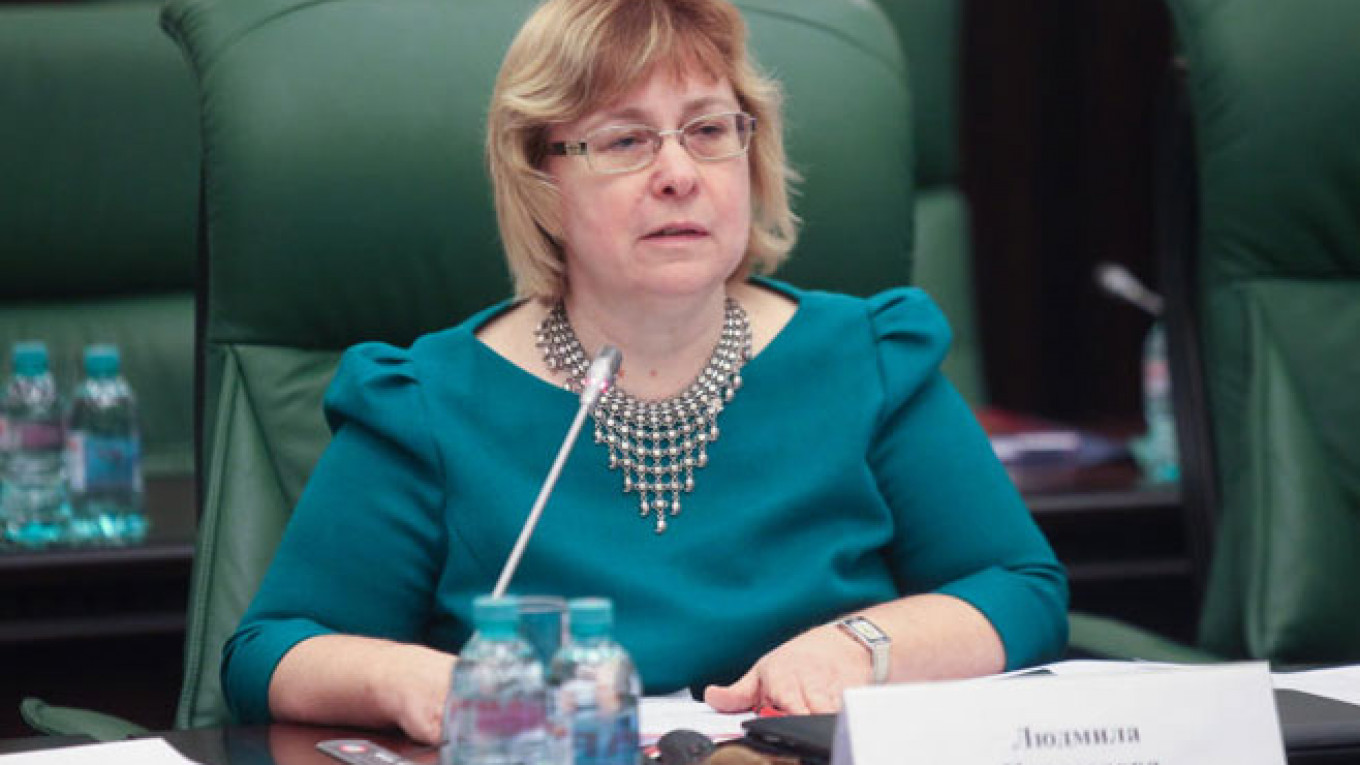Overworked and understaffed, Russia's fledgling Intellectual Property Rights Court is watching nervously as its case load continues to climb.
"Compared to analogous courts in Europe, we have a very high case load … and an increase in workload leads to the risk of a decline in the quality of our adjudication," said court chairwoman Lyudmila Novoselova during a conference Tuesday at RBK.
In the six months since it was founded on July 3, 2013, more than 2,000 cases have been filed with the court, and the number, particularly of appeals, continues to climb, Novoselova said. By the end of last year, 1,000 cases had been brought to a conclusion.
"We need to either increase the number of judges or somehow change the kinds of cases that we wind up hearing," she said. Sixteen judges currently serve in the court.
The court adjudicates patent rights, trademark violations and other intellectual property disputes. It does not handle piracy, which is the responsibility of the Moscow City Court.
Infringement of trademark predominates among the cases that the court has heard, making up 48 percent of appeals, while 19 percent concern copyright violations and 7 percent deal with related rights — which cover rights to performances and other noncopyrightable activities. A mere 5 percent of cases deal with patent violation, Novoselova said.
More than half of the cases the court has tried were filed by foreign companies, said Konstantin Lopushansky from law firm Kuchenev, Lopushansky and Partners.
Russia was rated 13th out of 25 countries for its protection of intellectual property in a report issued in January by the American Chamber of Commerce.
The report notes the creation of the Intellectual Property Rights Court as a positive development, but nonetheless lists "poor application and enforcement of civil remedies and criminal penalties" among Russia's key weaknesses in the defense of intellectual property.
Among the many difficulties the court has faced in its first months, along with such basic issues as not having its own permanent location, is the fact that there is no precedent for such a court in Russia, Novoselova said.
"The judges of the Court for Intellectual Property Rights have faced many issues for which current Russian legislation does not provide direct solutions," said Valentina Orlova, the head of intellectual property and trademarks at Pepeliaev Group.
Finding qualified staff is another major concern. The court relies heavily on conferences and other educational measures to raise its staff's qualifications, Novoselova said.
Meanwhile, low salaries make it impossible for the court to hire anyone other than recent graduates, who gather experience in the courts for a brief time and then move to the private sector, she added.
There is also a challenge in getting support from the technical and scientific specialists whose expertise is often needed for intellectual property cases, in part because the Russian court system has a negative image in the popular consciousness.
"If the court summons you, many people expect that they will be interrogated, that there will be some kind of scary consequences," Novoselova said.
"I think that with time we will be able to change this idea of the court and create a pool of specialists who can be relied on," she added.
Contact the author at d.damora@imedia.ru
A Message from The Moscow Times:
Dear readers,
We are facing unprecedented challenges. Russia's Prosecutor General's Office has designated The Moscow Times as an "undesirable" organization, criminalizing our work and putting our staff at risk of prosecution. This follows our earlier unjust labeling as a "foreign agent."
These actions are direct attempts to silence independent journalism in Russia. The authorities claim our work "discredits the decisions of the Russian leadership." We see things differently: we strive to provide accurate, unbiased reporting on Russia.
We, the journalists of The Moscow Times, refuse to be silenced. But to continue our work, we need your help.
Your support, no matter how small, makes a world of difference. If you can, please support us monthly starting from just $2. It's quick to set up, and every contribution makes a significant impact.
By supporting The Moscow Times, you're defending open, independent journalism in the face of repression. Thank you for standing with us.
Remind me later.






